The massacre of November 21
Pietransieri is completely destroyed together with Roccaraso, Rivisondoli, Castel Di Sangro, Ateleta.
Not a house still standing. Only Pescocostanzo is saved, due to its fortunate position compared to the other villages.
However, there is still a place where there are refugees: the Valle della Vita. About 300 people crammed into the farmhouses in the area.
The "Cuozz" had evidently not understood the gravity of the situation and all the deaths that had occurred up to November 20 were not enough to make people abandon those places.
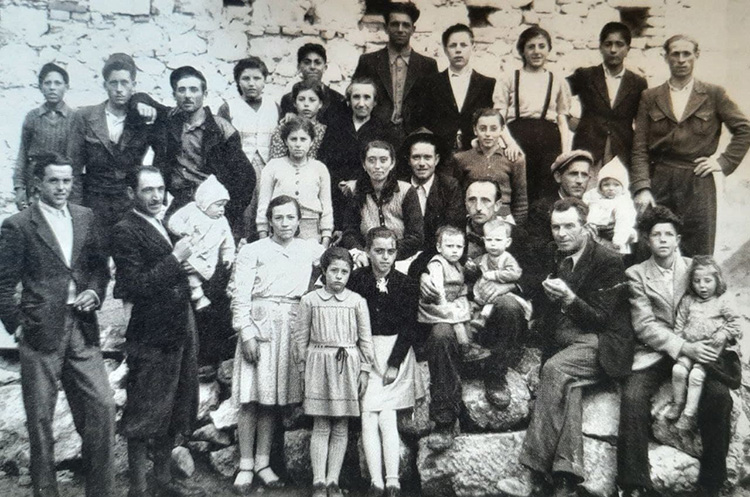
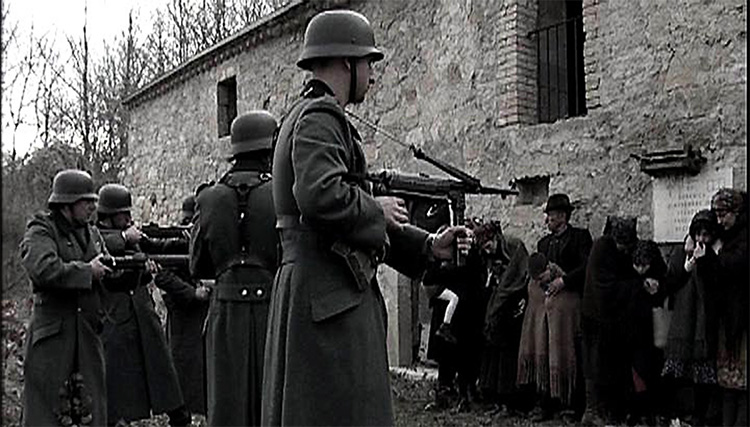
Well, on the morning of November 21, around 8:00 a.m., a handful of only 7 German soldiers, the few who had managed to have the courage of their actions, arrived at the district of Limmari and divided taking different directions: 2 of them went to the D'Aloisio's farmhouse, 2 others to the Macerelli's farmhouse and 2 more to the Di Virgilio's farmhouse. Not much is known about the seventh soldier, perhaps a mine carrier or perhaps the lieutenant himself.
They only had one task: to clear the entire area at all costs, given the imminent British threat. How? By arriving at the first farms, killing a part of the refugees, whether men, women or children, and putting the others to flee a clear and unequivocal message.
The D'Aloisio's farmhouse
The soldiers set off towards their respective destinations but there is someone who arrives before them. The villagers tell of the gesture of a "good soldier", who in an attempt to save at least the young people and children hurried to to warn the refugees in the farmhouse of the imminent tragedy, in an attempt to save at least the young people and children.
The D'Aloisio's farmhouse is divided into two housing units; one houses 14 people and the other 8 people. After the young soldier's message, most of them flee, except for 6 people, the oldest. The soldier reached the other farms and 17 others fled, taking different routes. Those who chose the river route unfortunately will not be saved.
As the German soldiers arrives. One man is outside the house, 5 women are inside. The man is shot outside, then the soldiers enter and kill the women. Four of them are in the living room kitchen, an elderly paralytic is slaughtered in the bedroom. The two soldiers remain in the cottage.
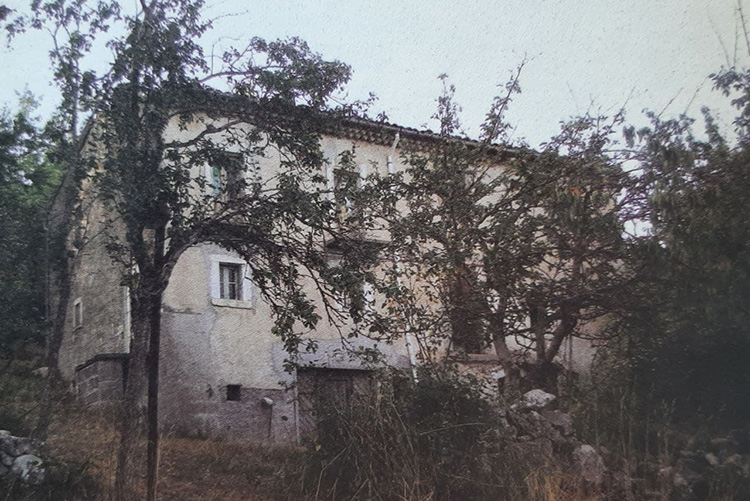
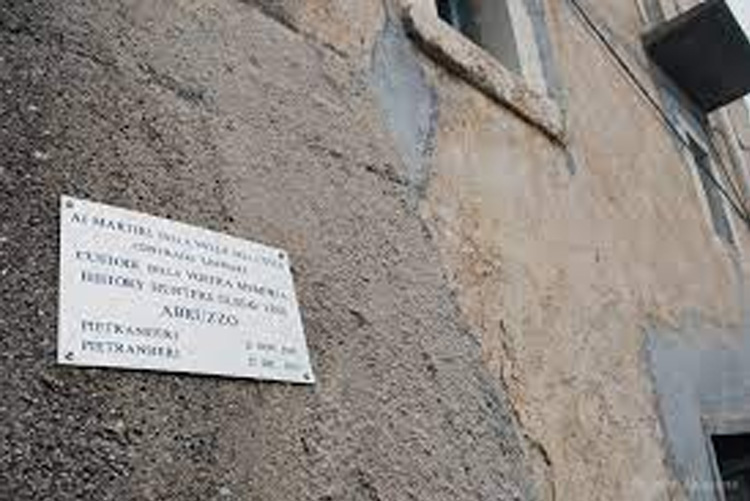
The Macerelli's farmhouse
The most recent historiography, which has studied this event that for a long time remained difficult to understand and reconstruct, has defined the Limmari operation as an act of terrorism, since the ultimate goal was indeed to terrorize the inhabitants of this area in order to push them to leave and keeping intact the "reputation" of the soldiers who had operated in that area.
In Casolare Macerelli there are 33 refugee people. The "good soldier" also arrives here to warn that his fellow soldiers are about to arrive to kill everyone. Historical sources certify his existence but his identity has never been ascertained.
The Macerelli is the farmhouse that houses the oven, the only one in the area, which a few days earlier had been mined. Along with the oven, a part of the farmhouse was blown up and the refugees had already spent the following nights in the cold and rain. They had set to work repairing the damage, proving that there was no intention of leaving those places.
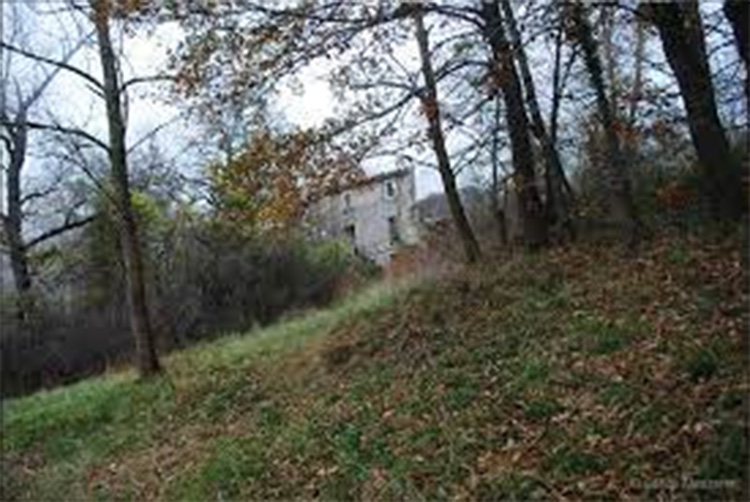
Those who don't escape, 15 men, women and children, are intercepted by German soldiers, rounded up outside the farmhouse and executed with machine guns. The farmhouse is then mined and blown up.
All this happened with a total lack of communication between Germans and Italians. The lack of management of the evacuation in the planned days and the total absence of representatives of the local institutions, who were also on the run, eliminated any possibility of verbal exchange between the two parties. In the absence of words, the only means of communication in this dramatic context were weapons.
The Di Virgilio's farmhouse
Two of the soldiers in charge of making scorched earth arrive, with a slow pace, at the Di Virgilio's farmhouse:
"While the German soldiers were heading to the Di Virgilio's farmhouse they met Edorista di Cristoforo, who was bringing bread to the other farms. They killed her but took the freshly loafed bread with them." (Maurizio Di Padova).
The "good soldier" doesn't arrive to warn the inhabitants but, instead, the fugitives from the other farmhouses arrive. The number of occupants increases dramatically, reaching about 80 people. Of the total, 35 people remain in the structure, while the others decide to flee.
The soldiers arrive, gather all those present in the large room on the first floor and fire their weapons. 35 dead were added to the 15 victims of the Macerelli's farmhouse and the 6 of the D'Aloisio's farmhouse:
"They were locked in a storeroom. The occupants managed to open the door and tried to put their case in front of the Germans but to no avail. A soldier machine-gunned them all." (Maurizio Di Padova).
After the execution, the soldiers leave the victims and head towards the Macerelli farmhouse and reuniting with the other 2 who had killed the people there. Probably with them is probably also Lieutenant Shulemburg or the mine carrier. The 5 go down to the D'Amico's farmhouse which is now full of people.
The D'Amico's farmhouse
Here there are about 60 refugees. Before the Germans arrive they tell each other, with disorder and terror, what has just happened in the other farms.
The first person the Germans they meet outside is one of Virginia Macerelli's sisters; they order her to light a fire. The woman asks her 76-year-old grandmother, Laura Calabrese, to take care of it, and she goes off in search of wood. This will be her salvation because the search for wood will take her out of the orbit of the Germans, who are busy with other matters.
The soldiers hide a machine gun behind a hedge, then bring everyone outside the farm for a "search" and round up near a tree to joint those who are already outside. As the refugees prepare to leave the house, they are hit by a hail of bullets. Fifty-three people lose their lives.
Some witnesses who were passing by say that the cries of agony and pain covered the noise of the machine gun. Those who were already outside, gathered in front of a large tree,
are blown up with a mine along with the trunk.
"I saw a horrible spectacle, all the corpses poured out on the ground in the shape of a circle around the trunk of the tree that almost didn't exist anymore, burned by the burst of a mine. Di Cristoforo also arrived with the other few men who were in the bush and with his light I recognized my wife and my son Evaldo who was on his knees with his eyes open and looking up. I took his head in my hands, he seemed to want to tell me something but a bullet had pierced his temple." (Italino Oddis).
From this episode only 2 survivors emerge: little Virginia Macerelli and Flavio, a child of the same age. Virginia was saved because she was protected by her mother's body during the machine-gun fire. Shot in the arms and one leg, she owes her life to her mother's body that acts as a shield. Despite her suffering, she has the coldness not to be noticed by the soldiers, especially when one of them, perhaps the lieutenant himself, decides to finish those who are still agonizing on the ground, with a shot to the forehead or the back of the head.
The Germans decide to leave but they realize the enormity of what their action and decide to erase all traces. Later they will return to set fire to the farmhouse and erase the evidence of their actions.
Virginia will be saved by her grandmother, the following day; little Flavio instead, forgotten, will die shortly thereafter.